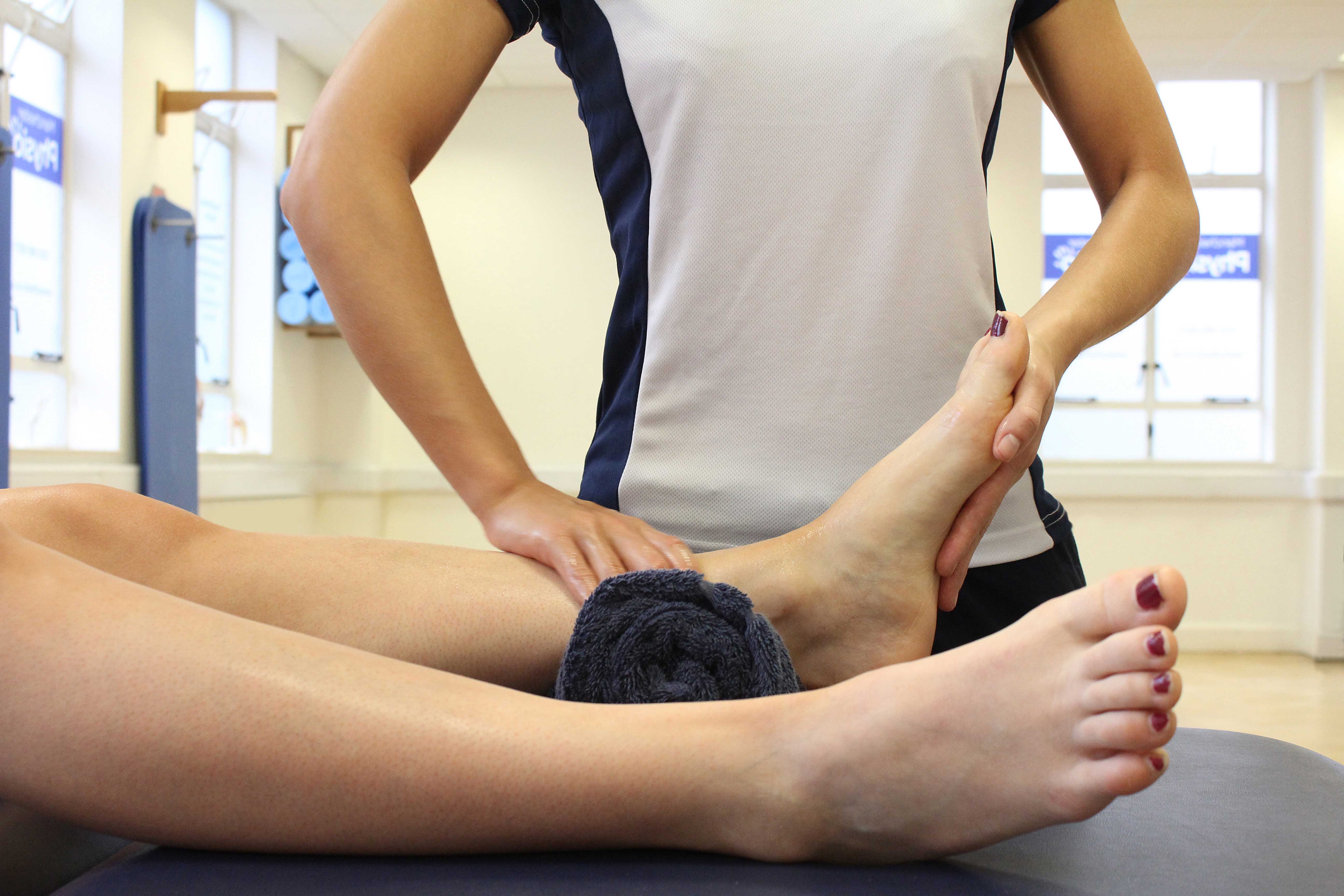Joint Replacement in the Hand
Joint replacement, or joint arthroplasty in the hand, is a surgical procedure whereby the lining of your joints is replaced by synthetic material. The joint surfaces of your fingers are lined with a material called articular cartilage which is designed to allow smooth movements where two bones meet.
A common reason for joint replacements of the hand is degenerative diseases. Over time and through overuse the articular cartilage can wear away (osteoarthritis) or be destroyed by your body’s own immune system (rheumatoid arthritis), leaving the ends of the bones to grind against each other. Therefore, a joint arthroplasty is performed to replace your cartilageenabling you to carry out activities with freedom of movement and less pain. This surgery can be performed on your metacarpo -phalangeal joints (knuckle) or your proximal interphalangeal joints (finger knuckle).
 Above: Mobilisation and stretches to the hand by specialist physiotherapist
Above: Mobilisation and stretches to the hand by specialist physiotherapistOther reasons for having a joint replacement in your hand include:
- Severe trauma
- Infection
Following hand joint replacement surgery, Physio.co.uk will assess the results of your operation and construct an effective rehabilitation plan in order to help restore hand function.
Symptoms Following Hand Joint Replacement Surgery
Following hand joint replacement surgery it is common for you to experience a number of symptoms that can be helped through treatment offered by Physio.co.uk. These symptoms include:
- Pain
- Swelling
- Bruising and
- Decrease range of movement and strength
Physiotherapy after Hand Joint Replacement Surgery
Following hand joint replacement surgery, Physio.co.uk can immediately compile a thorough assessment of your hand and develop a personal rehabilitation programme specific to your needs. Rehab will focus not only on restoration of movement and strength but on activities needed to return to active work, hobbies and sports. Treatment will begin following your surgery and recovery can be seen within 12 weeks.
Weeks 1-3
Initial treatment is focussed on minimising pain and swelling following surgery and to encourage the use of your finger in normal movement patterns. Through early encouragement, end stage rehabilitation becomes easier and the restoration of a fully functioning hand is more complete. Treatment will include:
- Cryotherapy (Ice)
- Analgesia (Pain killers)
- Passive controlled range of movement exercises
- Gentle active finger range of movement exercises
- Wrist range of movement exercises
- Wound monitoring
- Splint use – these can be fixed at varying lengths as to give a constant stretch on the tendon in order to improve range of movement and reduce stiffness.
- Electrotherapy modalities
- Advice
Weeks 4-6
After 3 weeks of rehabilitation your splint can be removed and your rehabilitation can be advanced. During this stage focus will be on the restoration of movement and building up of strength in order to help restore hand function. Treatment will comprise of:
- Splint removal
- Continued passive range of movement to reach end range.
- Active range of movement exercises
- Scar management
- Heat therapy
- Soft tissue massage to break down scar tissue
- Begin gentle strengthening exercises
Weeks 7-12
During the later stages of rehab you will begin to see marked improvements of movement, strength and function of your hand. Physio.co.uk will intensify your treatment to help maximise your hands mobility and restore functional use. Treatment will consist of:
- Continued active and passive range of movement exercises to end of range
- Progressive strengthening exercises
- Isolated strengthening of replaced joint.
- Hand dexterity
- Functional activity exercises
- Advice for long term care
Summary
Joint arthroplasty is a common surgery undertook to replace the joint of the thumb or finger, typically performed due to severe arthritic changes. Your cartilage is replaced with a synthetic version allowing for a return to painless, functional movement. Physio.co.uk will provide a thorough assessment and construct a specific rehabilitation programme with our goal to help patients keep their pain under control, improve strength and range of motion, and regain fine motor abilities with the hand and fingers. Call Physio.co.uk now on 0330 088 7800 for more information or to book an appointment please contact us.

 0330 088 7800
0330 088 7800

































